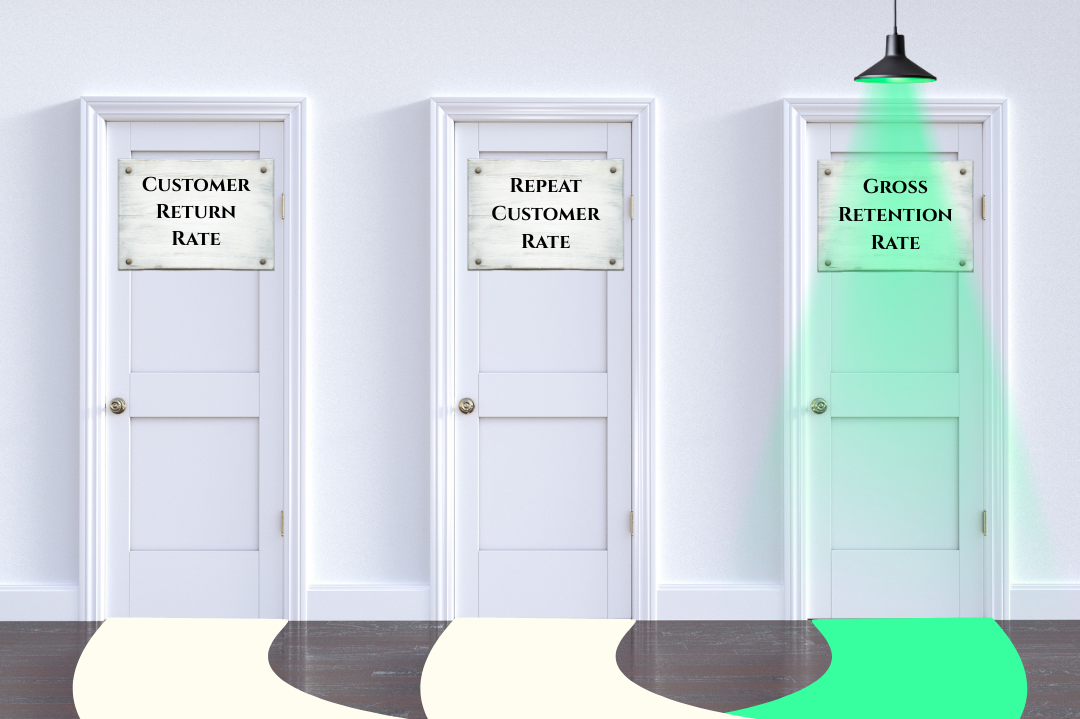September 17, 2024

In today’s increasingly digital and privacy-conscious world, consumers are more protective of their data than ever before. In fact, 53% of internet users report being more concerned about online privacy than they were a year ago.(Source) With growing restrictions around data collection and the deprecation of traditional third-party data sources, brands must rethink how they gather meaningful insights. This is where zero-party data comes into play. If you're not already leveraging this powerful tool, your business could be at risk of falling behind.
Unlike first-party data, which is passively collected based on a customer's behavior, zero-party data is data that consumers willingly share. This may include their preferences, intentions, and personal context, providing brands with a goldmine of insights that are directly offered by the customer themselves. With zero-party data, consumers voluntarily offer key details about their desires, motivations, and expectations, making it a much more reliable and accurate form of data collection.
By collecting data that customers willingly share, brands can gain a deeper understanding of customer health and, more critically, use this data to power customer movement—the behavioral shifts that drive engagement, loyalty, and long-term value.
Traditionally, brands have relied on first-party data, which is collected based on interactions like website visits, app usage, and purchase history. However, as data privacy concerns grow and regulations like GDPR and CCPA limit data tracking methods, relying solely on first-party data is no longer sufficient.
A recent study showed that 70% of marketers find it increasingly difficult to track customer journeys across multiple channels.(Source) With data deprecation on the rise, brands must pivot to zero-party data to maintain the quality of their insights. Zero-party data offers a critical solution because it allows businesses to collect customer insights directly from the source, ensuring both accuracy and privacy compliance.
According to Forrester, 45% of B2C marketing decision-makers say that it’ll be difficult for them to understand the behaviors, attitudes, motivations, and context of their high-priority customers and prospects in the next 12 months.This shift towards greater transparency and personalization offers an enormous opportunity for brands that prioritize customer-centric strategies.
One of the most valuable benefits of zero-party data is its ability to provide insights that improve customer health measurement. Customer health, in the context of today’s market, is no longer just about who is purchasing and how often. It’s about understanding the deeper emotional and behavioral ties customers have to your brand. Zero-party data offers direct insight into the intentions, preferences, and needs of customers, giving you a clearer picture of their overall engagement with your brand. Brands that can measure and analyze customer movement—the subtle but important ways in which a customer’s relationship with a brand evolves—are better equipped to retain those customers and drive sustainable growth.
By combining zero-party data with other sources of customer interaction data, brands can create a comprehensive customer profile that offers more accurate predictive value. For example, zero-party data can enhance a company’s ability to predict future purchasing behaviors, develop highly personalized campaigns, and deliver offers tailored to individual customer preferences. As a result, brands can proactively engage with customers in ways that keep them coming back, rather than reacting after they’ve disengaged.
Zero-party data’s biggest advantage is that it directly supports a brand’s efforts to personalize customer experiences while maintaining privacy. With consumer preferences shifting towards more individualized shopping journeys, personalization is no longer just a bonus—it's a necessity. Brands that fail to deliver a personalized experience will inevitably struggle to keep up.
Zero-party data empowers brands to create personalized experiences at scale. Imagine offering a customized email, product recommendation, or loyalty reward based on a customer’s self-reported preferences. These highly tailored interactions not only drive engagement but also build trust and loyalty. In fact, 65% of B2C marketing decision-makers say that their organization has responded to data deprecation by investing in more zero- and first-party data collection.
Additionally, zero-party data mitigates privacy concerns. Because customers actively share this information, there is no ambiguity about what data has been collected or how it will be used. This transparency is critical in today’s privacy-first environment, where consumers are increasingly selective about which brands they trust with their data.
Cohora has created a suite of tools that make it easier than ever for brands to collect and leverage zero-party data. Whether it’s through interactive content, community engagement, or gamified experiences, Cohora’s ecosystem is designed to facilitate data collection that feels natural and rewarding for the customer.
1.Interactive Content: Cohora’s branded quizzes, polls, and surveys make data collection fun and engaging. Customers willingly provide details about their preferences and interests, offering you insights into what drives their purchasing decisions. By seamlessly integrating these tools into your customer journey, you can build richer profiles and deliver more personalized experiences.
2. Community Engagement: Cohora’s branded customer engagement community fosters deeper relationships with customers by encouraging meaningful participation. Each interaction within the community provides invaluable zero-party data, enabling brands to understand customer sentiment and engagement levels in real time. This allows you to measure customer health more effectively and adjust your strategy accordingly.
3.Gamification for Voluntary Data Sharing By incorporating games and contests, brands can incentivize customers to share data voluntarily. Studies show that 70% of consumers are willing to share behavioral and psychographic data in exchange for a better service. With Cohora’s dynamic contests and personalized games, brands can tap into this willingness and gather valuable data without feeling intrusive.
Collecting zero-party data is only the first step. The real value lies in turning this data into actionable insights that can drive business outcomes. Cohora’s platform goes beyond data collection by offering powerful analytics that help brands measure customer health and predict future customer value.
By leveraging zero-party data, brands can gain a more accurate picture of customer loyalty, lifetime value, and satisfaction. This predictive power allows businesses to develop more effective engagement strategies, design innovative loyalty programs, and increase profitability through personalized offers and content.
Transitioning from first-party to zero-party data collection is a strategic move that requires careful planning and execution. Brands must be transparent about how they collect and use data and create a compelling value exchange that encourages customers to share their information willingly.
However, the urgency to act cannot be overstated. The future of customer engagement is built on trust, personalization, and privacy. Zero-party data is the foundation that will enable your brand to deliver all three.
Zero-party data is the future of customer insights. It provides an unparalleled opportunity for brands to create personalized experiences, build trust, and ensure data privacy, all while gaining a deeper understanding of their customers’ needs. As the limitations of first-party data become more apparent, brands that fail to adopt zero-party data risk falling behind their competitors.
Are you ready to unlock the power of zero-party data and transform your customer engagement strategy?
With Cohora’s innovative platform, you can collect, expand, and leverage zero-party data for superior customer insights, improved predictive value, and enhanced personalization.
Discover how Cohora’s solutions can help your brand harness zero-party data for long-term success.
Schedule a demo today and start delivering personalized experiences that build customer trust and loyalty.


.png)


